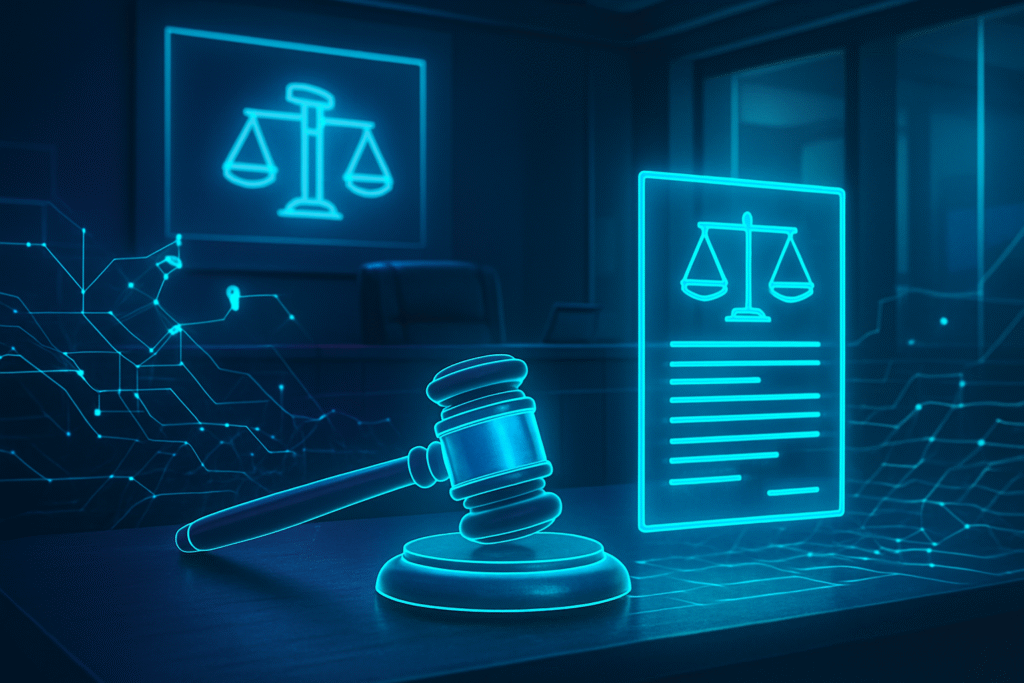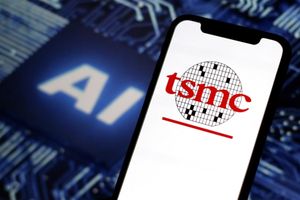
In a rapidly evolving legal technology landscape, Alexi AI is aggressively positioning itself to become the undisputed leader, particularly in the realm of AI-powered litigation support. With a strategy centered on proprietary Advanced Legal Reasoning (ALR) and robust private cloud deployments, Alexi is not merely aiming to automate tasks but to fundamentally transform the entire litigation workflow, offering law firms a powerful competitive edge through sophisticated, secure, and customizable AI solutions. The company's recent advancements, particularly its ALR capability launched in January 2025, signify a pivotal moment, promising to enhance efficiency, elevate legal service quality, and reshape how legal professionals approach complex cases.
Alexi's immediate significance lies in its ability to address the legal industry's pressing demand for accuracy and efficiency. By automating routine and high-volume tasks, Alexi claims to reduce the time spent on such activities by up to 80%, allowing litigators to dedicate more time to strategic thinking and client engagement. This not only boosts productivity but also aims to lower costs for clients and elevate the overall quality of legal services. Its rapid customer growth, now serving over 600 mid-market to enterprise legal firms, underscores its immediate impact and relevance in a market hungry for reliable AI innovation.
Technical Prowess: Orchestrating Intelligence for Legal Precision
Alexi AI's technological foundation is built on two key differentiators: its proprietary Advanced Legal Reasoning (ALR) and its enterprise-grade private cloud offerings. These innovations are designed to overcome the limitations of generic AI models and address the unique security and accuracy demands of the legal sector.
The ALR capability, launched in January 2025, represents a significant leap beyond traditional legal AI tools. Instead of relying on a single, broad generative AI model, Alexi's ALR orchestrates a suite of specialized AI agents. When presented with a complex legal question, the system intelligently deploys specific agents to perform targeted tasks, such as searching statutory law, analyzing case documents for financial information, or identifying relevant precedents. This multi-agent approach allows for deep document analysis, enabling the platform to ingest and analyze tens of thousands of legal documents within minutes, uncovering nuanced insights into case strengths, weaknesses, and potential strategies. Crucially, Alexi developed a proprietary Retrieval-Augmented Generation (RAG) approach, effectively deploying this technology before its widespread adoption, to limit information retrieval to a highly contained set of case law data. This strategy significantly minimizes the risk of "hallucinations" – the generation of false or misleading information – which has plagued other generative AI applications in legal contexts. Alexi's focus is on accurate retrieval and verifiable citation, using generative AI only after the research phase is complete to synthesize findings into structured, cited outputs.
Complementing its ALR, Alexi's private cloud solutions are a direct response to the legal industry's stringent security and compliance requirements. Unlike public cloud AI platforms, Alexi offers single-tenant architecture deployments, such as "Alexi Containers," where each client firm has a dedicated, isolated instance of the software. This ensures sensitive client data remains within the firm's controlled environment, never leaving its infrastructure, and is not used to train Alexi's general AI models. The private cloud provides enterprise-grade encryption, SOC 2 compliance, and full intellectual property (IP) ownership for AI models developed by the firm. This architectural choice addresses critical data sovereignty and confidentiality concerns, allowing firms to customize use cases and build their own "AI stack" as a proprietary competitive asset. Initial reactions from the legal industry have largely been positive, with legal tech publications hailing ALR as a "transformative product" that significantly boosts efficiency and accuracy, particularly in reducing research time by up to 80%. While some users desire deeper integration with existing CRM systems, the overall sentiment underscores Alexi's user-friendliness and its ability to deliver precise, actionable insights.
Reshaping the Legal Tech Competitive Arena
Alexi AI's aggressive strategy has significant implications for the competitive landscape of AI legaltech, impacting established tech giants, specialized AI labs, and burgeoning startups alike. The global legal AI market, valued at USD 1.45 billion in 2024, is projected to surge to USD 3.90 billion by 2030, highlighting the intense competition for market share.
Established legal information providers like Thomson Reuters (NYSE: TRI) and LexisNexis (a division of RELX PLC, LSE: REL) are integrating generative AI into their vast existing databases. Thomson Reuters, for instance, acquired Casetext for $650 million to offer CoCounsel, an AI legal assistant built on Anthropic's Claude AI, focusing on document analysis, memo drafting, and legal research with source citations. LexisNexis's Lexis+ AI leverages its extensive content library for comprehensive legal research and analysis. These incumbents benefit from large customer bases and extensive proprietary data, typically adopting a "breadth" strategy. However, Alexi's specialized ALR and private cloud focus directly challenge their generalist approach, especially in the nuanced demands of litigation where accuracy and data isolation are paramount.
Among AI-native startups, Alexi finds itself in a "war," as described by CEO Mark Doble, against formidable players like Harvey (valued at $5 billion USD), which offers a generative AI "personal assistant" for law firms and boasts partnerships with global firms and OpenAI. Other key competitors include Spellbook, a Toronto-based "AI copilot for lawyers" that recently raised $50 million USD, and Legora, a major European player that has also secured significant funding and partnerships. While Harvey and Spellbook often leverage advanced generative AI for broad applications, Alexi's sharp focus on advanced legal reasoning for litigators, coupled with its RAG-before-generative-AI approach to minimize hallucinations, carves out a distinct niche. Alexi's emphasis on firms building their own "AI stack" through its private cloud also differentiates it from models where firms are simply subscribers to a shared AI service, offering a unique value proposition for long-term competitive advantage. The market is also populated by other significant players like Everlaw in e-discovery, Clio with its Clio Duo AI module, and Luminance for contract processing, all vying for a piece of the rapidly expanding legal AI pie.
Broader Significance: Setting New Standards for Responsible AI in Law
Alexi AI's strategic direction and technological breakthroughs resonate far beyond the immediate legal tech sector, signaling a significant shift in the broader AI landscape and its responsible application in professional domains. By prioritizing specialized AI for litigation, verifiable accuracy, and robust data privacy, Alexi is setting new benchmarks for how AI can be ethically and effectively integrated into high-stakes industries.
This approach fits into a wider trend of domain-specific AI development, moving away from generic large language models (LLMs) towards highly specialized systems tailored for particular industries. The legal profession, with its inherent need for precision, authority, and confidentiality, demands such bespoke solutions. Alexi's ALR, with its multi-agent orchestration and retrieval-first methodology, directly confronts the "hallucination problem" that has plagued earlier generative AI attempts in legal research. Independent evaluations, showing Alexi achieving an 80% accuracy rate—outperforming a lawyer baseline of 71% and being 8% more likely to cite valid primary law—underscore its commitment to mitigating compliance and malpractice risks. This focus on verifiable accuracy is crucial for building trust in AI within a profession where unsupported claims can have severe consequences.
Moreover, Alexi's "Private Cloud" offering addresses paramount ethical and data privacy concerns that have been a bottleneck for AI adoption in law. By ensuring data isolation, enterprise-grade encryption, SOC 2 compliance, and explicit assurances that client data is not used for model training, Alexi provides a secure environment for handling highly sensitive legal information. This contrasts sharply with earlier AI milestones where data security and model training on proprietary information were significant points of contention. The ability for firms to build their own "AI stack" on Alexi's platform also represents a shift from simply consuming third-party technology to developing proprietary intellectual capital, transforming legal practice from purely service-oriented to one augmented by productivity engines and institutional AI memory. The wider significance lies in Alexi's contribution to defining a responsible pathway for AI adoption in professions demanding absolute accuracy, confidentiality, and accountability, influencing future AI development across other regulated industries.
The Horizon: AI-Driven Arbitration and Evolving Legal Roles
Looking ahead, Alexi AI is poised for significant near-term and long-term developments that promise to further solidify its position and transform the legal landscape. The company's immediate focus is on achieving full coverage of the litigation workflow, with plans to roll out tools for generating court-ready pleadings within the coming year (from late 2024). This expansion, coupled with its existing Workflow Library of over 100 customizable AI workflows, aims to automate virtually every substantive and procedural task a litigator encounters.
In the long term, Alexi's ambition extends to creating a truly comprehensive litigation toolbox and empowering law firms to build proprietary AI assets on its platform, fostering an "institutional AI memory" that accrues value over time. Alexi CEO Mark Doble even predicts a clear path toward AI-driven binding arbitration, envisioning streamlined dispute resolution that is faster, more affordable, and objective, though still with human oversight for appeals. Beyond Alexi, the broader AI legaltech market is expected to see exponential growth, projected to reach an estimated $8.0 billion by 2030, with 2025 being a pivotal year for generative AI adoption. Potential applications on the horizon include enhanced predictive analytics for case outcomes, further automation in e-discovery, and AI-powered client service tools that improve access to justice.
However, challenges remain. Despite Alexi's efforts to mitigate "hallucinations," maintaining absolute accuracy and ensuring human oversight remain critical. Data security and privacy will continue to be paramount, and the rapid pace of AI development necessitates continuous adaptation to regulatory and ethical frameworks. Experts predict that AI will augment, rather than replace, human lawyers, freeing them from routine tasks to focus on higher-value, strategic work. Law schools are already integrating AI training to prepare future attorneys for this evolving landscape, emphasizing human-AI collaboration. The emergence of "agentic AI" is expected to empower early adopters with new capabilities by 2025, enabling more efficient service delivery. The shift in billing models, moving from traditional billable hours to value-based pricing, will also accelerate as AI drives efficiency gains.
A New Era for Legal Practice: Alexi's Enduring Impact
Alexi AI's aggressive strategy, anchored by its Advanced Legal Reasoning (ALR) and secure private cloud solutions, marks a significant inflection point in the history of legal technology. By directly addressing critical industry pain points—accuracy, efficiency, and data privacy—Alexi is not just iterating on existing tools but fundamentally reimagining the future of legal practice. The company's commitment to enabling law firms to build their own proprietary AI assets transforms AI from a mere utility into a compounding competitive advantage, fostering an "institutional AI memory" that grows with each firm's unique expertise.
This development signifies a broader trend in AI: the move towards highly specialized, domain-specific intelligence that prioritizes verifiable outcomes and responsible deployment. Alexi's success in mitigating AI "hallucinations" through its retrieval-first approach sets a new standard for trustworthiness in AI-powered professional tools. As the legal industry continues its digital transformation, Alexi's comprehensive suite of tools, from advanced research memos to strategic case development and workflow automation, positions it as a frontrunner in defining the next generation of legal services.
In the coming weeks and months, the legal and tech communities will be watching closely for Alexi's continued expansion into pleadings generation and other litigation workflow areas. The competitive "war" for market dominance will intensify, but Alexi's unique blend of technical sophistication, security, and strategic vision places it in a strong position to lead. Its impact will likely be measured not just in efficiency gains, but in how it reshapes the roles of legal professionals, fosters greater access to justice, and establishes a blueprint for responsible AI adoption across other highly regulated industries. The era of truly intelligent and secure legal AI is upon us, and Alexi AI is at its vanguard.
This content is intended for informational purposes only and represents analysis of current AI developments.
TokenRing AI delivers enterprise-grade solutions for multi-agent AI workflow orchestration, AI-powered development tools, and seamless remote collaboration platforms.
For more information, visit https://www.tokenring.ai/.





